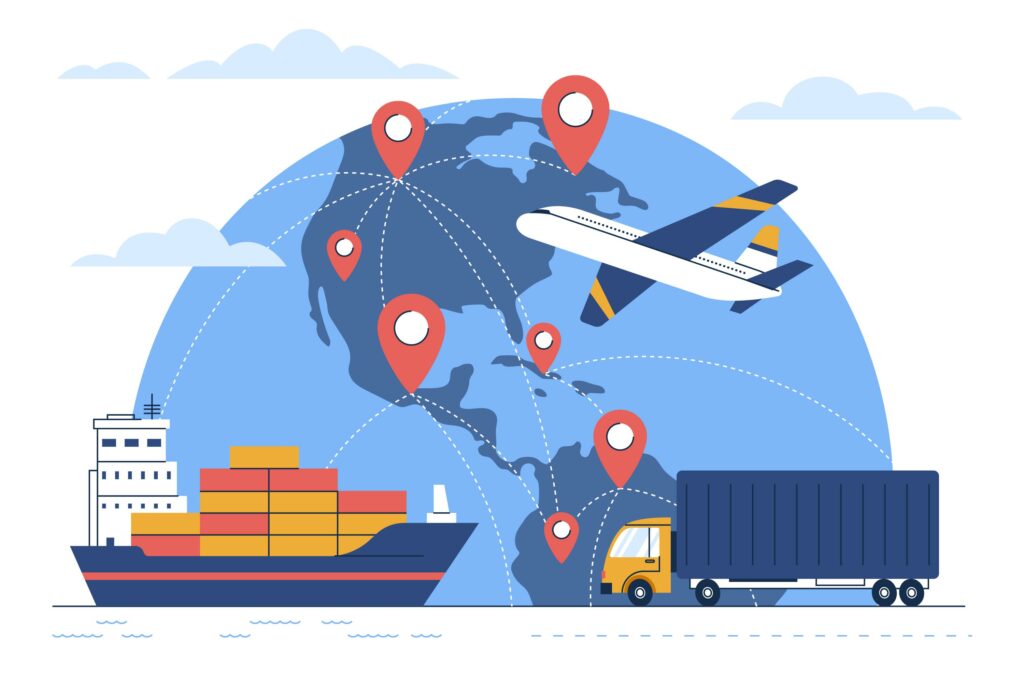Comprehensive Solutions for N.V.O.C.C Operators: Discover Pearltcdt.com.pk
In the fast-paced and complex world of Non-Vessel Operating Common Carrier (N.V.O.C.C) operations, having access to a robust and reliable platform can make all the difference. Pearltcdt.com.pk is meticulously designed to cater to the unique needs of N.V.O.C.C operators, providing a comprehensive suite of tools and resources that streamline processes, enhance operational efficiency, and ensure strict compliance with industry regulations. This innovative platform empowers operators to manage their logistics seamlessly, from advanced shipment tracking and efficient document management to real-time compliance checks and cost-optimization strategies, making Pearltcdt.com.pk an indispensable asset in the competitive maritime shipping industry.

Key Features for N.V.O.C.C Operators:
-
Advanced Tracking and Management:
Pearltcdt.com.pk provides real-time tracking and comprehensive management of shipments. With detailed tracking capabilities, N.V.O.C.C operators can monitor cargo movement from origin to destination, ensuring transparency and efficiency. The platform offers GPS integration and automated updates to keep you informed about the status of your shipments at all times -
Document Management:
Managing critical documents such as bills of lading, shipping instructions, and customs declarations is simplified with Pearltcdt.com.pk. Our document management system ensures accuracy and reduces paperwork, facilitating seamless communication with stakeholders. Digital storage and easy retrieval of documents help in maintaining organized records and enhancing workflow efficiency -
Compliance and Regulation:
Staying compliant with international shipping regulations is crucial for N.V.O.C.C operators. Pearltcdt.com.pk offers up-to-date regulatory information and automated compliance checks to ensure that all operations adhere to the latest standards. Our platform keeps you informed about changes in regulations and helps mitigate risks associated with non-compliance. -
Inventory and Warehouse Management:
For N.V.O.C.C operators who also manage warehousing, our platform offers comprehensive inventory management solutions. Track inventory levels, manage storage space, and streamline warehouse operations to ensure that goods are stored and dispatched efficiently. Real-time inventory updates and automated alerts help in maintaining optimal stock levels and reducing storage costs. -
Integration Capabilities:
Pearltcdt.com.pk integrates seamlessly with other logistics software and systems, providing a unified platform for managing all aspects of N.V.O.C.C operations. Whether it’s accounting software, customs clearance systems, or carrier networks, our integration capabilities ensure smooth data flow and operational harmony.
Benefits of Using Pearltcdt.com.pk for N.V.O.C.C Operations
- Enhanced Operational Efficiency: Pearltcdt.com.pk streamlines all aspects of N.V.O.C.C operations, from shipment tracking to document management, ensuring that processes are handled efficiently and effectively.
- Real-Time Shipment Visibility: With advanced tracking features and GPS integration, operators gain real-time visibility into cargo movement, allowing for timely updates and proactive issue resolution.
- Simplified Compliance Management: Stay up-to-date with international shipping regulations through automated compliance checks and access to the latest regulatory information, reducing the risk of non-compliance penalties.
- Cost Savings: Optimize routes, negotiate better rates, and minimize operational costs through data-driven insights and cost-effective solutions provided by Pearltcdt.com.pk.
- Improved Customer Satisfaction: Enhanced customer relationship management (CRM) tools help manage customer interactions, track service performance, and ensure satisfaction through personalized communication and feedback collection.

Conclusion
In an industry where efficiency, accuracy, and compliance are paramount, Pearltcdt.com.pk stands as a beacon of innovation and reliability for N.V.O.C.C operators. Our platform is designed to address the unique challenges faced by N.V.O.C.C operators, providing comprehensive solutions that enhance operational efficiency, reduce costs, and ensure compliance with regulatory standards. By choosing Pearltcdt.com.pk, you equip your business with the tools needed to navigate the complexities of the shipping industry and achieve sustained success. Whether you’re an established operator or just starting out, Pearltcdt.com.pk is your trusted partner in the journey towards excellence in N.V.O.C.C operations
